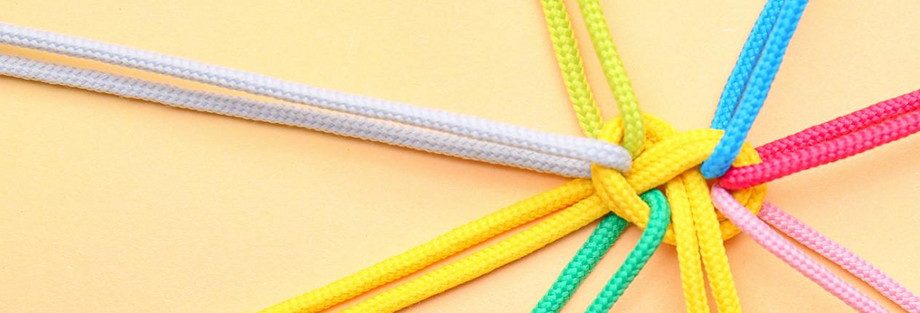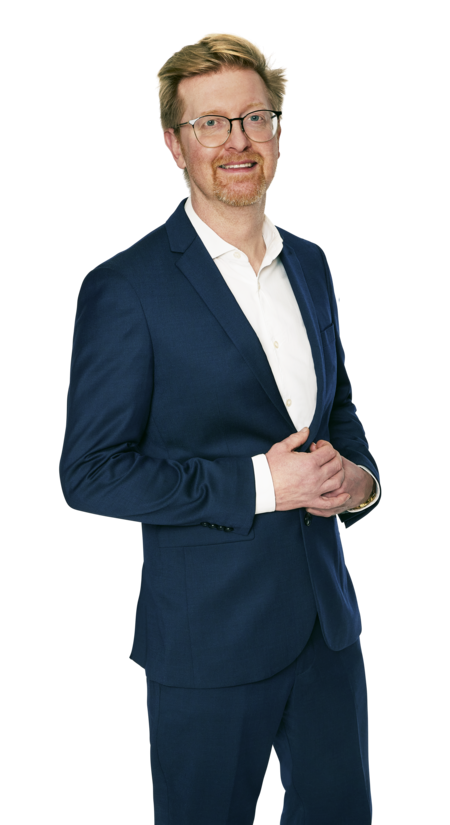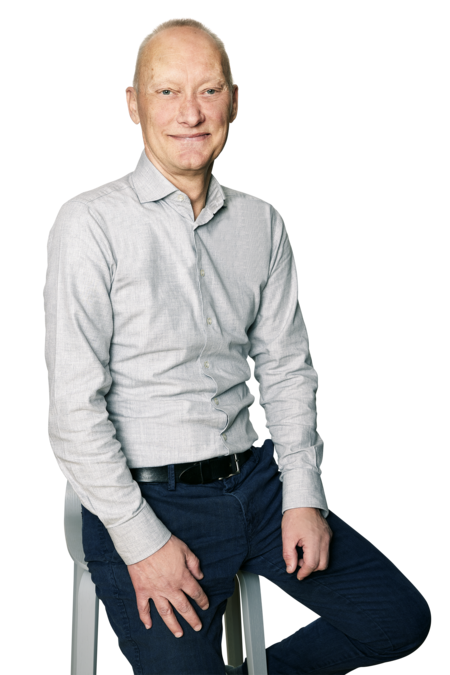Human sciences and practice tackle societal challenges - From social isolation to polarized climate debate

17.11.22 l Latest news
Five combined practice and research projects will create solutions and new knowledge to tackle current societal challenges. From children in care, young people with autism, residents of residential facilities to staff shortages in elder care and gaps in the climate debate. The projects will receive grants totalling DKK 27.3 million from VELUX FONDEN’s HUMpraxis programme.
VELUX FONDEN aims to advance Denmark’s democratic society on an informed, inclusive and sustainable basis.
“The focal point of the HUMpraxis programme is to create new knowledge and concrete solutions in relation to current societal and environmental challenges,” says Henrik Tronier, Head of Programme for VELUX FONDEN’s Humanities research.
“The thinking behind the programme is that effective changes and solutions here are best achieved if they are developed in a close, interacting and equal collaboration between professional practitioners and researchers in the humanities. In addition to the specific project grants, we have taken the initiative of establishing a network with other actors who want to promote broad capacity building in research-practice collaboration as a way to solve current societal challenges.”
Four of this year’s five HUMpraxis projects focus on social sustainability for people in socially vulnerable positions and will help to support their democratic involvement and participation in societal communities. The fifth project will help strengthen citizen involvement in the Danish climate debate.
VELUX FONDEN has received a total of 68 expressions of interest for this year’s HUMpraxis notice. The five awarded projects have been selected from the 13 projects that were invited to submit a full application on the basis of their expressions of interest. These projects were eligible to receive project maturation funds of up to DKK 100,000, so that they have, among other things, been able to free up time from the practice participants for the development of the application.
One of this year’s projects stems from the massive recruitment problems in municipal elderly care and seeks to establish what is needed to increase access to working communities in elderly care for citizens who find it difficult to gain a foothold in the labour market. Another of the projects will test how teaching esports can motivate young people with autism to complete educational courses and develop skills that can support them in the transition to adult life. And a third project examines the interaction between staff and residents in residential facilities in order to better equip practitioners to have trust-building conversations with citizens and contribute to basic research into trust.
Project 'SUPERVISED CONTACT: SuppOrt and sustainable development in vUlnerable childrens everyday Life (SOUL)' must contribute to ensuring that contact between children in care and their biological parents benefits the child. Maria Appel Nissen, Professor, Department of Sociology and Social Work at Aalborg University, is head of research on the project:
“We lack both Danish and international research knowledge about contact for children placed outside the home. There is knowledge and experience in the practical work with togetherness, but it has not been translated into research-based methods that put the child’s voice, perspective and everyday life at the centre of the quality of the interaction. The researchers and working professionals are therefore necessary for each other and work together in the project to lift practice for the benefit of the child’s well-being and development.”
Maria Appel Nissen emphasises that even though children are placed outside the home for good reasons, their relationship with their biological parents is important – even if it is limited, vulnerable and conflictive:
“A child placed outside the home needs to make sense of and have a sustainable narrative about the placement and their relationship with their biological parents. This has an impact on their well-being and development in childhood, adolescence and the transition to adulthood. Our project will contribute to ensuring that the professionals and adults in the child’s everyday life have an increased focus on parent-children togetherness and supporting the important societal task of reducing exposure in the lives of children placed in care.”
Bridging gaps in the climate debateIn the project, 'CLIMATE-PART', practice partners and researchers will bridge the gap between the political desire to involve citizens in climate policy and the way many citizens engage with the climate in their everyday lives through, for example, activism, communities of action, etc. Together with the Danish Board of Technology and the Climate Movement, researchers at CBS will develop new methods for citizen involvement based on citizens’ self-organised and everyday climate participation:
“The practice collaboration will be a space of enquiry to understand and learn from the conflicts in recent years that have called into question the way the state and municipalities understand and practice climate involvement. Together, we have identified a need to become directly involved in the contrasts and conflicts that can arise between citizens who are deeply engaged in climate policy and municipalities’ tools and strategies for inclusion. At the forefront, the research presents this as a conflict between passionate and self-organised versus more rational and facilitated forms of participation and strategies,” says Head of Research Professor Robin Holt from CBS, adding that in the project they will investigate what drives citizens’ climate-engaged demands to be involved and suggest how these requirements can be integrated into new tools for involvement:
“We will disseminate the learning that arises through the collaboration, among other things, through a laboratory for debate on and the development of new methods for climate participation, drawing on the Danish Board of Technology and the Climate Movement’s experience with experimental formats for political dialogue such as living labs, podcasts and theatre.”
Primary applicant: Professor, PhD, Dr. Merc. Robin Holt, Department of Management, Politics and Philosophy, Copenhagen Business School
Granted amount: DKK 5.486.196
There is a gap between the political wish to involve citizens in climate politics and the way in which many citizens engage in climate issues: Through activism, in their everyday life and by organizing in local communities. Politicians want more participation and citizens want to be heard. What is the problem? The methods used for citizens’ participation depend on a certain understanding of what counts as politically legitimate participation. The aim of the project is to expand current understandings and practices of participation in light of the climate crisis. With the first national Climate Citizens’ Assembly in 2019, and new research in democratic innovations, a renewal of traditional methods for participation is already underway.
CLIMATE-PART - a collaboration between CBS, Teknologirådet and Klimabevægelsen - contributes to this movement by developing new methods for citizens’ participation in climate issues that build on citizens’ self-organized and everyday forms of climate participation. Praxis partners: Teknologirådet and Klimabevægelsen
- SuppOrt and sustainable development in vUlnerable childrens everyday Life (SOUL)
Primary applicant: Professor Maria Appel Nissen, Department of Sociology and Social Work, Aalborg University
Granted amount: DKK 5.465.741
This project focuses on an important dimension in the life of children placed in out-of-home care: their contact and relationship to their biological parents. This contact involves many actors, conflicting emotions, interests and considerations and adjacent challenges, which can hinder that the voice of the child is heard and given importance. The project develops a new practice theory and a research-based method where the child’s needs, interests and everyday life are included and become decisive for what is considered a safe and developing contact. The method strengthens sustainable collaboration, prevent conflicts, and supports the child in developing a narrative about the relation to parents and network, which improves the contact and gives the child the opportunity to develop a life history that makes sense in the long term. A sustainable democracy is dependent on people’s experience of being valuable and capable of affecting their own life conditions.
The project is conducted in a partnership between Århus Municipality Family Center, Vejle Municipality Family and Disability Department, Ikast-Brande Municipality Family counselling, Center for Social Work Foundation VITA, Children and Youth Center Vejle/YMCA social work; Children center Team Contact Århus Municipality and Department of Sociology and Social Work, Aalborg University.
- For vulnerable youth with autism
Primary applicant: Professor Thorkild Hanghøj, Department of Communication and Psychology, Aalborg University
Granted amount: DKK 5.397.368
The number of young people diagnosed with autism is increasing sharply. A large proportion of vulnerable young people with autism have a strong passion for gaming, which has led many STUs (Specialized Youth Education) to offer educational esports activities. In this project, it is investigated how esports education can motivate young people with autism to complete STU courses and develop coping strategies as well as professional, social and personal skills that can support young people in the transition to adulthood, further education and/or working life. In addition to contributing new theoretical and empirical knowledge in an overlooked field, the project also develops free teaching material and evaluation tools for practitioners. The project is carried out in close collaboration between researchers, young autists, STU lecturers, esports consultants as well as UU supervisors and case managers.
Research partner: Professionshøjskolen Absalon. Praxis partners: Sputnik STU, Fremtidslinjen STU, STU Anholtvej; Autismecenter Vestsjælland, Koordinerede Ungeindsatser, Esport Danmark, Oneway Esport, Københavns Kommune, Slagelse Kommune og Køge Kommune.
Primary applicant: Reader Eva Pallesen, Centre for Management and Administration, Absalon School of Applied Sciences
Granted amount: DKK 5.498.198
The purpose of this project is to create cross-sectoral knowledge on access to participation in workplace communities in elderly care for citizens without a solid foothold in the labor market – and to activate this knowledge as a basis for developing existing programs aimed at this group. Theoretically, the project revitalizes theories on workplace learning in relation to care work – a field that has received sparse research attention. The project contributes theoretically by developing the concept of learning environment in a cross-organizational perspective and in a context, where established barriers for participation exist. Furthermore, the project aims to contribute by developing learning circles as a method for practice-research co-creation.
Praxis partners: SOSU Nykøbing Falster, Lolland Kommune, SOSU Østjylland og Aarhus Kommune. University partner: Department of Communication and Psychology, Aalborg University.
Primary applicant: Assistant Professor Ann Merrit Rikke Nielsen, Department of Nordic Studies and Linguistics, University of Copenhagen
Granted amount: DKK 5.499.766
When it comes to helping vulnerable people researchers and practitioners agree that trust is key. Unfortunately, knowledge about how trust in practiced is very limited. In communications training trust is typically treated as a “black box” and therefore difficult to operationalise in practice. Based on video ethnographic data TIES studies how trust as an interactional phenomenon is achieved, maintained or lost in encounters between employees and residents in social and resocialising institutions. Through identification of indicators of trust and distrust we contribute to trust research with a conceptualization of trust as social interactional phenomenon. We also develop pedagogical tools of reflection and resources for training that will enable employees to practice trust and lead trust building conversations that help to empower residents to reach for their goals and to participate meaningfully in communities in- and outside the institution.
Praxis partners: Bofællesskabet Lioba og Café Exit.

